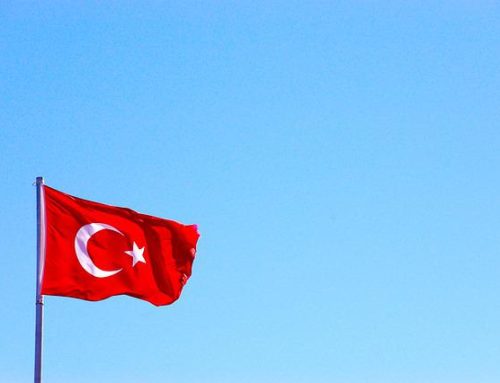09.12.2020
ICI Turkish Manufacturing PMI November 2020 Report and Turkish Sectoral PMI Report Were Announced
Istanbul Chamber of Industry Turkey Manufacturing PMI (Purchasing Managers Index), the fastest and most reliable reference for the manufacturing industry’s performance that is the leading indicator of economic growth decreased to 51,4 in November and continued to give signal that performance conditions are improving. PMI was at the lowest level of the recovery period that started in June following the recession of Covid-19. Since fast increase in the Covid-19 case numbers in Turkey caused the customer demand and production processes in the negative direction, that was the main challenge that firms faced in November. Therefore, new orders and production lost speed. New export orders were observed to lose speed as well..
According to the Istanbul Chamber of Industry Turkey Sectoral PMI November data, the second wave of Covid-19 experienced in Turkey, especially the Europe and other regions across the world resulted in the speed lost in many industrial manufacturing sector during November. Only in the four of ten sectors followed, the activity conditions improved. In terms of new orders, two sectors as chemicals, plastic and rubbery sector and food products were observed to be in the growth zone.
The November 2020 results of Istanbul Chamber of Industry Turkey Manufacturing PMI survey (Purchasing Managers Index), the fastest and most reliable reference for the manufacturing industry’s performance that is the leading indicator of economic growth were announced. Based on the survey results where all figures measured over 50,0, the threshold value point out to sectoral improvement, PMI which was measured as 53,9 in October recessed to 51,4 in November and continued to give a signal that activity conditions improved. PMI was at the lowest level of the recovery period that started in June following the recession of Covid-19. Since fast increase in the Covid-19 case numbers in Turkey caused the customer demand and production processes in the negative direction, that was the main challenge that firms faced in November. Therefore, new orders and production lost speed. New export orders were observed to lose speed as well.. The slowdown recorded in these three indicators experienced in much moderate level compared to the peak point of the first pandemic wave at the beginning of 2020.
The relatively positive improvement of the survey resulted from the continuation of the firms’ increasing their employment level depending on the strong recovery experienced in the business volumes during the recent months. The growth trend in employment reached six months and maintained its strong course. The increase in the number of employees and the slowdown in new orders allowed firms to continue to reduce backlogs.
Covid-19 pandemic caused more serious impact on the supply chains and the increase in the delivery duration in November experienced in the highest level for the third time of the survey history, which contributed to the recession in the input stocks. Similarly, purchasing activities recorded a slight decrease depending on the decrease in the production requirements. The value loss of Turkish Lira against USD in the recent period served as a determinant in the continuation of sharp increases in both input costs and final product prices. On the other hand, inflation rates demonstrated a slight decrease for both compared to those in October.
Andrew Harker, Economy Director of IHS Markit who evaluated the Istanbul Chamber of Industry Turkish Manufacturing PMI Data expressed that: “The acceleration of the Covid-19 outbreak caused the Turkish manufacturing industry to lose speed in November and resulted in weakness in the demand. On the other hand, it was observed that the confidence of the companies in the future was sufficient to continue new recruitments in the sector which previously showed to recover swiftly without the disruption born by the pandemic. And in terms of inflation, several positive indications drew attention. Increase speed in input costs and final product prices recorded a slight recession compared to October. Depending on the recovery in some of the losses of Turkish lira recently, we might see the inflation losing speed during the following months.
Recovery lost speed in sectors
According to the Istanbul Chamber of Industry Turkey Sectoral PMI November data, the second wave of Covid-19 experienced in Turkey, especially the Europe and other regions across the world resulted in the speed lost in many industrial manufacturing sector during November. Only in the four of ten sectors followed, the activity conditions improved. The number of improving sectors halved compared to October. In terms of new orders, two sectors as chemicals, plastic and rubbery sector and food products were observed to be in the growth zone. Chemical, plastic and rubber products maintained their strong pace of recent times, but even in this sector growth lost speed. New orders in the food industry improved for the first time in the last three months. Electrical and electronic products was the sector to experience the sharpest slowdown in new orders. The second fastest decrease was experienced in the clothing and leather goods sector continuing to be under pressure.
New export orders lost speed in seven of the ten sectors followed up. Trends in new orders mostly applied for production as well. Production increased only in food and chemical products. Despite of the slowdown in workloads, companies generally continued recruiting which was recorded as the positive improvement in the survey. Employment increased in nine of the ten sectors and a horizontal course was observed in the land and sea vehicles sector. The fastest job creation rate was experienced in the chemical, plastic and rubber industry. Inflationary pressures remain strong due to recent exchange rate increases and raw material supply problems and some indications were observed that that inflation rates may have peaked in some sectors. Cost inflation lost speed in four sectors, mainly food products and base metals. The sharpest increase was experienced in the non-metallic mineral products sector. Delivery durations increased in a higher speed compared to October in all sectors excluding the two. The increase speed of final product prices lost speed in more than half of the sectors.
Source: Istanbul Chamber of Industry
Legal Notice: The information in this article is intended for information purposes only. It is not intended for professional information purposes specific to a person or an institution. Every institution has different requirements because of its own circumstances even though they bear a resemblance to each other. Consequently, it is your interest to consult on an expert before taking a decision based on information stated in this article and putting into practice. Neither Karen Audit nor related person or institutions are not responsible for any damages or losses that might occur in consequence of the use of the information in this article by private or formal, real or legal person and institutions.






